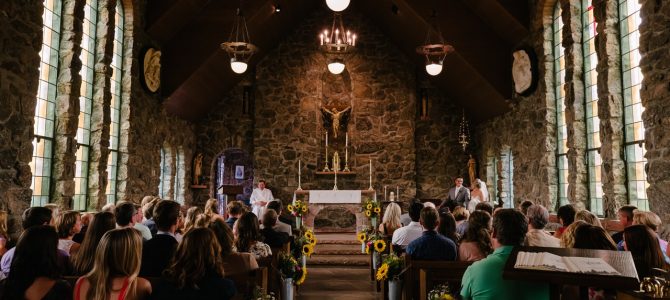
A pastor friend shared this story with me some months ago.
On a particular Sunday morning last Fall, two men entered his moderately sized conservative Bible church in a northeast suburb of Houston. The shorter one, Bobby, being more gregarious than his friend Mark, approached the woman at the welcome counter, a 40-ish mother and faithful church volunteer. Bobby introduced himself and his friend to Evelyn and asked if he could ask her a question. ‘That’s what I’m here for,’ she said. ‘Ask away!’
They explained they desired “some spirituality in their lives” and have always been intrigued by the activity and growth at this church. They wondered if they would be welcome to visit and check it out. Evelyn warmly assured them this is one of the primary reasons their church exists, to be a source of spiritual growth and encouragement to the community and, of course, they were totally welcome.
Bobby and Mark looked at each other with a touch of anxiety as if Evelyn missed the core of the question. Mark just blurted out, ‘Even if we’re a couple?’
Evelyn had never met a gay couple before and was a bit nervous. But being the prize greeter she was, responded quickly in her Lower Louisiana Cajun twang, ‘Well, I hope you’d come as couple! Otherwise you could get lost here,’ and grabbed one of the men from the choir passing by, introduced them all and asked if he might make sure Bobby and Mark find some new friends to sit with. She told them she was glad they were there and to look for her if they had any questions.
What kind of reception would these men find on a Sunday morning at your church?
Even though conservative churches are largely assumed to be unwelcoming, even hostile, toward gay-identified people, I am confident that in the vast majority of our churches—even the most blue-haired, traditional ones—the answer would be similar to what these men received at my friend’s church.
Sure, like Evelyn, your greeters might experience some initial uncomfortableness, not so much because their inquirer is gay-identified, but primarily because this is how humans typically feel when meeting someone well outside their own community. It would be just as if a crusty, leather-clad motorcycle-gang person, a Buddhist monk, a dreadlocked homeless person, or a hippy dippy new-ager visited. It is natural to take a moment to adjust.
However, it would be the rare and unfortunate exception for a church’s welcoming crew to feel as if they had to check with a staffer before welcoming the couple: “Uh, we got two guys out here who say they’re gay and want to attend our service! Is that okay?” They would do what they do with all visitors, regardless of their story. They would be welcoming, just as Evelyn, the nice car-pooling suburban mom, was. I have heard too many similar stories to believe it would be otherwise.
To be sure, some churches might tell Bobby and Mark that worshiping somewhere else might be right for them. They mistakenly believe some sins require exclusion from attending. Such congregations are thankfully rare and generally disapproved of by most Christians, as they should be.
Most biblically faithful churches realize they exist for all who might be interested in seeking Christ. Almost every good evangelical of a certain age was catechized with countless choruses of Billy Graham’s “Just as I Am,” after all. Most would be honored God entrusted them with such visitors.
What About ‘Welcoming and Affirming’?
Yes, the “welcoming and affirming” term rainbow-clad churches use has become an intentional and polarizing dividing line. It’s intended to shame those who don’t go along. If one is not “welcoming and affirming,” he must be rejecting and judgmental. Pick a side. It works like the term “marriage equality.” What reasonable person would be against equality? It’s the power of framing.
Like the story from my pastor friend above, however, we might be welcoming, but are we affirming? The affirming half of the manipulative term is even more slippery. Do we affirm all who visit our churches? Are we affirming to none, or do we pick and choose?
It depends on what we mean by the word. A primary tenet of Christianity is the inherent dignity and worth of the person. Everyone must be affirmed simply for who they are: a never-before-seen image-bearer of the Trinitarian God. Full stop. This is absolute, and to say we should affirm people based on some individual particularity beyond their common humanity is actually a violation of equality itself.
People are not to be valued, loved, and accepted because they are rich or poor, smart or dumb, attractive or ugly, fashionable or outdated, city mouse or country mouse, vegan or carnivore, gay, straight or otherwise, but simply because they are. Likewise, to affirm every individual totally and without reserve is not the same as affirming everything about them. Goodness, we can’t affirm everything about ourselves. So it’s a nonsense word in this context.
We Affirm the Worth of Every Human Person
But indeed, all people must make decisions regarding what ideas, actions, and self-identities they can and cannot affirm in themselves and others, and why. Therefore, on the question at hand, every Christian must ask: “What is the sexual ethic Jesus taught?”
He affirms all people. He doesn’t affirm all sexualities. In fact, our Lord takes a remarkably narrow view here, pointing us back to the first two chapters of Genesis. The only other way to arrive at any other sexual ethic is through creative hermeneutics.
When we consider whether our churches are what they should be toward our gay-identified neighbors, family members, and friends, we must judge ourselves against five truths—the Great Equalizers—that are unique to Christianity and place all of us in the very same boat:
- Every human being we will ever meet is of inestimable worth and dignity, none more or less than another. No exceptions.
- Every human being we will ever meet is deeply and passionately loved and desired by God, none more than another. No exceptions.
- Unfortunately, everyone we will ever meet, especially ourselves, is infected with a terminal illness: sin. None more than another. No exceptions.
- All, as children of Adam, are tragically separated from God, but this does not diminish his boundless love for us. It does, however, devastatingly hinder our relationship with him, none more than another. No exceptions.
- Therefore, everyone is in desperate need of repentance, healing, and the new life that comes only in surrender and submission to Christ, none more than another. No exceptions.
This is mere Christianity. As we all stand as equals before God, we must do three things in our churches to be faithful to God, the wonder of the gospel and those he brings to our doors, regardless of their story: Eagerly welcome all who come to us without hesitation and reservation; faithfully and lovingly teach and preach the fullness of the Word of God to all; and trust the Holy Spirit to convict all of our sin as we encounter Christ and learn his word in the community of fellow believers.
Love Speaks the Truth
We please God and do well to others by loving them without compromise. We fail in this when we re-write his rules for ourselves or others. Some years ago, a same-sex-attracted woman wrote a deeply personal open letter to the church. It speaks mightily to each of us from the honesty and depth of her heart. I will give you the meatiest parts.
Many of you believe we do not exist within your walls… We are in your Sunday School classes, pews, choirs and pulpits. Many choose not to see us out of ignorance or because we might upset your congregations. We ARE your congregation. We enter your doors weekly seeking guidance and some glimmer of hope that we can change. …Rarely do we hear any words of hope.
[But] to those of you who would change the church to accept the gay community and its lifestyle: you give us no hope at all. To those of us who know God’s word and will not dilute it to fit our desires, we ask you to read John’s letter to the church in Pergamum.
‘I have a few things against you: You have people there…who taught Balak to entice the Israelites to sin by eating food sacrificed to idols and by committing sexual immorality. …Repent therefore!’
You are willing to compromise the word of God to be politically correct. We are not deceived. If we accept your willingness to compromise, then we must also compromise. We must therefore accept your lying, your adultery, your lust, your idolatry, your addictions, YOUR sins. ‘He who has an ear, let him hear what the Spirit says to the churches.’ (emphasis in original)
She concludes,
We do not ask for your acceptance of our sins any more than we accept yours. We simply ask for the same support, love, guidance, and most of all hope that is given to the rest of your congregation. We are your brothers and sisters in Christ. We are not what we shall be, but thank God, we are not what we were. Let us work together to see that we all arrive safely home.
Refusing to compromise basic Christian teaching is not a refusal to “affirm.” We don’t help anyone by carving out two polar and false opposites and demand one take sides: welcome or reject, affirm or condemn.
The truth, like life, typically lies somewhere between the extremes. Getting there is not always easy, but it is worth the pursuit and struggle. In this arena, all Christians have no choice but to be like Jesus, “full of grace and truth” (John 1:14), showing uncompromising grace toward people and uncompromising truth about our sexuality.









